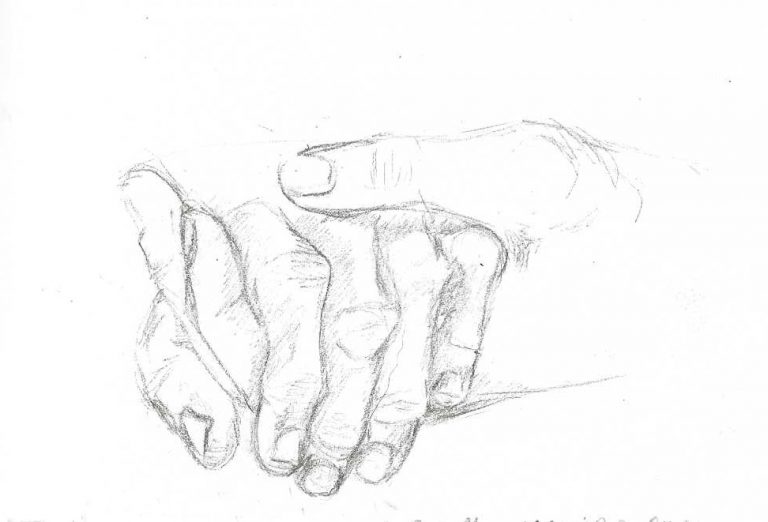Night shift in a nursing facility is quiet…sort of. But not completely. Many residents are awake all night, and many more intermittently through the night. Interesting and philosophical conversations occur in the small hours while most people are asleep. A new and profound understanding of life is found when you are so often exposed to death. Aspects of who and what we are become visible in ways that we can not imagine until we see them up close: The smell of death; the eyes of fear; how tricky memory can be. Common fears, frustrations and symptoms of the human condition are voiced over and over again. When serving our fellow human beings, especially nearer the end of life, we begin to find a deeper understanding of ourselves.
Working as a CNA brings many stories; interesting, frightening, and amazing stories. In my short experience I learned about love, pain and spirituality from people so wise they didn’t even comprehend their level of wisdom.
Minds and bodies fail in ways one could never would imagine. Some people become deeply depressed and fight; others gracefully accept the process; many simply lose themselves and are unaware of what is happening to them. And while the matter is grim, and we never want to think about or discuss the subject, assisting people during their final hours teaches us much about life.

One night, a resident sat in the dining room of the facility. I came to sit with him during my lunch break.
He told me stories of fleeting memories, similar to relaying the contents of a dream, only bits and pieces of the story still remained.
As with many others in the facility, he was confused in mind and body. At one in the morning, he would wander the halls reading menus and event calendars.
When I sat next at a table next to him, I said “Hello, how are you this fine morning?”
“Hi, young lady. I am wonderful. Have you had breakfast here before? I am trying to decide what to order.”
I smiled and replied “Well, I couldn’t tell you how the breakfast is. I am always gone before the kitchen staff gets here in the morning.”
He straightened out, let out a “huff” and looked at me with a sideways glance. ‘“Well, how rude.” he said.
He was a kind man, at one time a rancher herding sheep and cattle in the high country and back down, cursing the government for limiting where they could range. Every year they were limited just a little more in where they could drive their herds. Once a strong man, able to lift a calf onto his shoulders, he now sat quietly at night because walking had become difficult. His hands were worn. His body was aching.
While we sat together, he began to tell me again about his mother and living in a family of ranchers as a child. “We lived on a ranch when I was a kid.” He tells me “My mother, she had some trouble once with a cow. Or maybe it was a horse. She wouldn’t tell me what kind of trouble. But that…that was the end of her voice. My memory isn’t great,” he said to me.
“Memory is one of those tricky things.” I told him. I stood and patted him on the shoulder “Just when we need it most, it leaves us. I will come visit in a few minutes; my lunch is over.”
“I am going to stay here and wait for my breakfast.” He returned to reading his menu. “So much of our lives are spent in waiting.”
He was right. So much time waiting. So often we sit and wait instead of taking action. There is such a trick to waiting. We must approach so much of our lives with patience and caution, but that caution can quickly paralyze us.
Another resident I took care of who often wandered our halls would ask so many questions, like a child. She would ask why my hair was short or why I was up so late; why the tv had commercials for cell phones; or why she shouldn’t sing loudly in the hall at two in the morning.
When I started taking care of her, I learned that in her mind she was a business woman. She would tell me about trouble with clients, and missing meetings. She traveled for business and she was here in her hotel room. Another day, she believed she was in the hospital because she had just had her baby. But the sicker she got, the younger she became in her mind. It was as if her mind was rewinding to happier times as her body began to die.
The night she left us, she thought she was a child. She asked me for help finding her ball.
“I want to go home. I want my Mama,” she said “Can you get her for me? I need her.”
“Why do you need her? Maybe I can help you?” Her mother had long passed; she is over ninety years old.
“I want to tell her that I love her.” she says, looking at me. While her skin is crinkled and aged, her eyes held the innocent look of a child. The memory of her mother brought her so much comfort.
“I think she knows, honey.” I replied.
Suddenly, her face changed.
“Did you come to pray for me?” she asked me.
“I can if you want me to.”
“I need to go to the hospital. Take me to the hospital, please?”
She was right, she needed to go. After she left, I made her bed and I prayed for her.
She had so many questions, but the answers were not important. What she needed was just to tell someone she loved them and to hear they loved her. In the end, love was what mattered the most.
While working the night shift, I was cussed out. I was hit. People would tell me that my black and Hispanic coworkers had taken things from their rooms. Confusion and fear take over easily when we are unwell. I always knew not to take it personally and that the confusion these people were experiencing created an anger that they would never have felt earlier in life. Working in this a nursing home is not for the faint of heart. But through it all, I felt a kind of love I have never experienced before or since. As one of my residents told me: “Some days are sour like a big dill pickle, and some are sweet like a bread and butter pickle. You have to take the sour with the sweet because both are good.”
We only have now, and within this short life we can use that moment in infinite ways. I feel that my time spent caring for my elderly friends helped me to appreciate this moment, to understand that death is just another part of life and to love with all my heart. Because, whether sweet or sour, we are all good.
